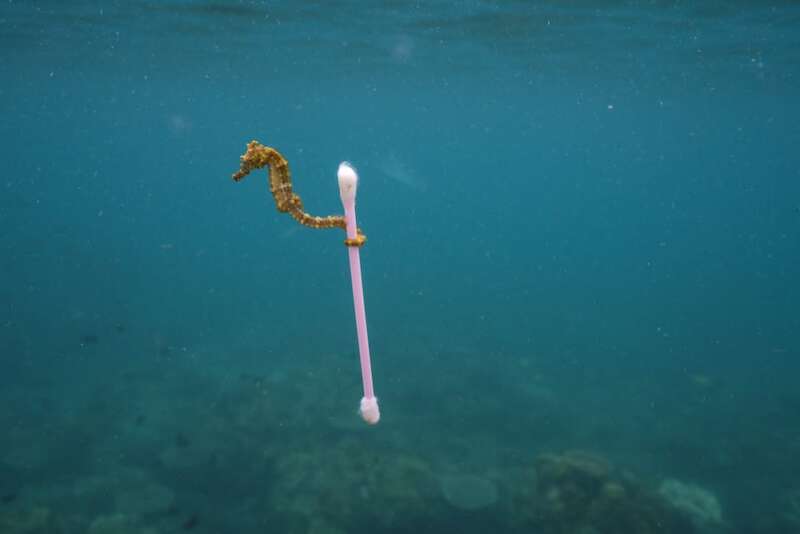Got plans this weekend? Catch the latest exhibition from National Geographic at the ArtScience Museum from now until 28 March 2021. Planet or Plastic? tells the story of plastic’s evolution and features over 70 profound images.
In Singapore, 700 million kgs of plastic are discarded every year. By 2050, predictions suggest that plastic in oceans could outweigh marine life. And every day approximately 8 million pieces of plastic pollution find their way into our oceans. These are but a few of the confronting stats you’ll be faced with if you pay a visit to the latest exhibition to hit Singapore’s ArtScience Museum.
Planet or Plastic? an exhibition by National Geographic, tells the story of plastic. From its invention just over a century ago, to its infiltration of our everyday lives and the environmental impact brought on by its mass consumption. Featuring interactive zones, moving imagery, short films, and a raft of facts that will stop you in your tracks, this is a must-see exhibition for all the family.

FACT: One trillion plastic bags are used every year
Kathryn Keane, Vice President of Public Programming at the National Geographic Society says: “Plastic pollution is one of the most important global environmental challenges of our generation. But it is an issue that we can all do something about. This exhibition informs us about how we got here, the scope of the problem, and how we can each be a part of the solution. National Geographic has made a commitment to reducing our reliance on single-use plastics and our hope is that after seeing this exhibition, visitors will join us in that commitment.”
FACT: It takes over 160,000 days for a disposable face mask to break down
Featuring over 70 images across six ‘zones’, the exhibition aims to raise awareness of our dependence on plastic and the devastating harm it’s causing our fragile ecosystems. In particular, the impact of plastic waste in our oceans is confronting. But it’s not all doom and gloom. The ArtScience Museum is backing up the exhibition with a series of activities to help visitors take action. From beach clean-ups and online climate change conversations to film screenings and online performances. You’ll leave feeling inspired and ready to make positive change.
FACT: Nine million tonnes of plastic waste ends up in the ocean each year.

#LittleGreenSteps
1. Visit our Zero Waste Take Action page to learn more and discover multiple #LittleGreenSteps, from saying no to plastic straws and bags to replacing your plastic toothbrush with a bamboo alternative. You’ll find plenty of easy to implement tips and tricks that will help you transition towards a zero-waste lifestyle.
2. ArtScience Museum is organising a beach clean-up to remove plastic waste from Singapore’s shoreline in collaboration with Seven Clean Seas. Taking place on 5 December 2020 and 20 February 2021, be sure to sign up to guarantee your spot. Details will be available closer to the dates on the ArtScience Museum Facebook page.
Get your tickets here to Planet or Plastic? The exhibition is showing now until 28 March 2021.
*Lead image courtesy of Jordi Chias. A loggerhead turtle is ensnared in an old plastic fishing net in the Mediterranean Sea off the coast of Spain. The turtle could stretch its neck above water to breathe, but it would have died had it not been set free by the photographer. “Ghost fishing” by derelict fishing gear is a big threat to sea turtles and other marine mammals.
